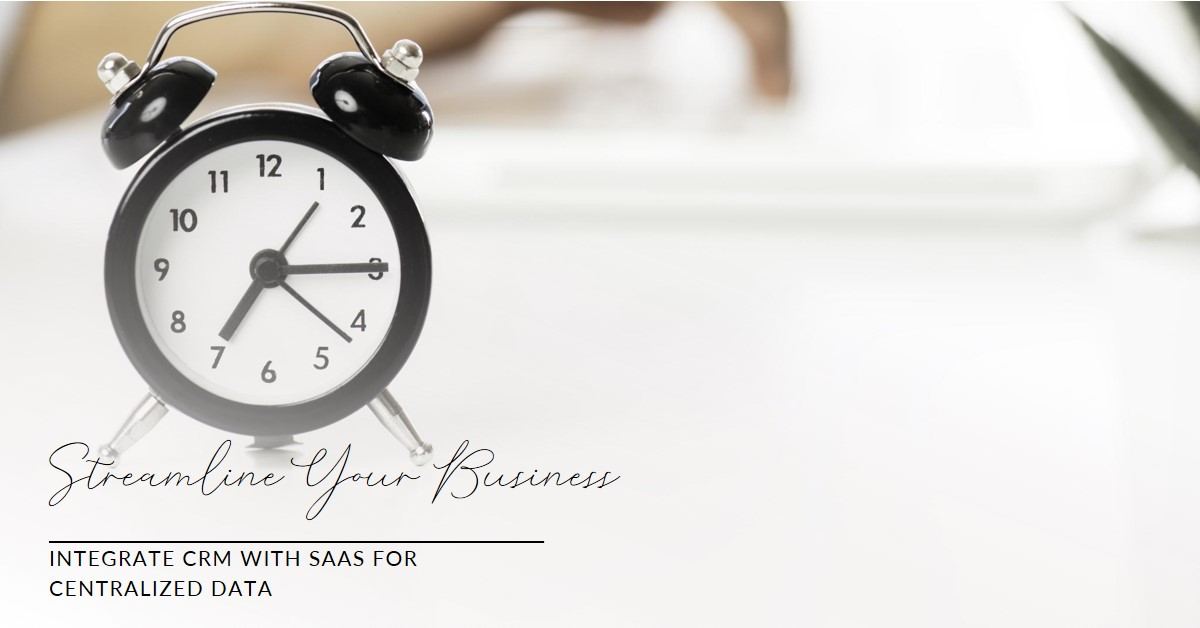In the era of digital transformation, businesses are continuously seeking ways to enhance efficiency and productivity. The integration of Customer Relationship Management (CRM) tools with enterprise Software as a Service (SaaS) platforms has emerged as a strategic solution to centralize data and streamline workflows across departments. This integration not only facilitates seamless communication and data sharing among teams but also boosts overall organizational performance.
The Importance of CRM-SaaS Integration
CRM systems are designed to manage company interactions with current and potential customers. By integrating these systems with broader SaaS platforms, organizations can leverage a unified system that centralizes all customer information, making it accessible to various departments such as sales, marketing, and customer service. This centralization results in a more coherent approach to customer management and enables more personalized customer experiences.
A 2021 survey by Salesforce revealed that businesses using CRM software witnessed sales increases by up to 29%, sales productivity by up to 34%, and accuracy in forecasting by 42% (Salesforce, 2021). Integrating CRM with enterprise SaaS platforms extends these benefits across the enterprise, ensuring that all data pertinent to customer management is synchronized and up-to-date, which enhances decision-making and business agility.
Key Benefits of CRM-SaaS Integration
Enhanced Data Accessibility
When CRM systems are integrated with SaaS platforms, data silos are eliminated. This results in improved data accessibility, where employees across departments can access customer information in real-time. Real-time data access helps in creating accurate reports and analytics that are essential for strategic decision-making.
Improved Customer Service
Integration allows customer service teams to access all customer interactions, history, and preferences. This comprehensive view enables them to provide more tailored and efficient service, improving customer satisfaction and retention rates.
Streamlined Workflows
Automating workflow between different software systems reduces manual entry errors and saves time. For example, updates in the CRM system can automatically reflect in the enterprise resource planning (ERP) system, ensuring that departments such as billing and logistics have real-time access to the latest data.
Cost Efficiency
Integrating systems can significantly reduce IT and operational costs by eliminating the need for multiple systems and reducing reliance on IT support to manage different platforms.
How P99Soft Enhances CRM-SaaS Integration
P99Soft specializes in CRM consulting services that facilitate the seamless integration of CRM tools with enterprise SaaS platforms. By leveraging our expertise, businesses can ensure that their CRM systems are perfectly synchronized with other enterprise applications, leading to improved data centralization and workflow optimization. Our approach not only focuses on technical integration but also ensures that the processes align with the organization’s strategic goals.
Implementation Strategies
Successful CRM-SaaS integration involves several key strategies:
- Choosing the Right Tools: Selecting the right CRM and SaaS platform that aligns with your business needs is crucial. These tools should not only be compatible but should also be scalable to accommodate future growth.
- Data Mapping and Migration: Careful planning of data mapping and migration is essential to ensure data integrity. This involves defining how data from different sources will be combined and structured in the new system.
- Customization and Configuration: Customizing the CRM and SaaS platforms to fit the specific needs of different departments within the organization is vital for maximizing the benefits of integration.
- Continuous Training and Support: Ongoing training for staff and continuous support from CRM consultants are critical to ensure smooth operation and adaptation to the integrated system.
FAQs
Q1: What is the primary challenge of CRM-SaaS integration? The main challenge is ensuring data consistency across different systems and platforms without creating disruptions in existing workflows.
Q2: How does CRM-SaaS integration impact customer experience? It enhances customer experience by providing a holistic view of customer interactions across departments, enabling more personalized and timely responses.
Q3: Can CRM-SaaS integration affect the security of my data? Proper integration strategies include robust security measures to ensure that data remains secure across platforms.
Q4: How long does it typically take to integrate a CRM system with a SaaS platform? The time frame can vary significantly based on the complexity of the systems and the extent of customization required, ranging from a few weeks to several months.
Q5: Is CRM-SaaS integration suitable for small businesses? Yes, even small businesses can benefit from integration, as it helps streamline operations and improve efficiency, which is crucial for growth.
Conclusion
Integrating CRM tools with enterprise SaaS platforms is not merely a technological upgrade but a strategic enhancement that drives business growth and efficiency. With the right approach and expert guidance, such as the services provided by P99Soft, organizations can realize the full potential of their digital transformation efforts. As we continue to navigate a highly interconnected and data-driven business environment, the question remains: Is your organization ready to embrace the future of integrated business management systems?
Also know Cloud-Based Talent Management: Revolutionizing HR Practices
